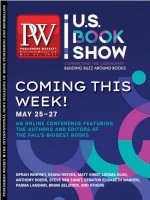An uncle who enacts a deranged Christian test of faith, a high school teacher who encourages poetry writing, and an ill-fated joyride in a stolen maintenance vehicle.
These are the characters and events that shape the sprawling debut bildungsroman from J. William Lewis, set in the lawyer-novelist’s home state of Alabama in the 1950s and featuring Kit Biddle, who obsesses about the meaning of life while processing the killing of his cousin Nathan by his uncle, Nathan’s father, the year before.
Lewis began writing the book, his first novel, in the 1980s. “I wrote the first draft fairly quickly and then put it aside for gestation,” he says. “I also put it aside because I had a large and demanding law practice and legal writing commitments.” The impetus for the book came from revisiting The Catcher in the Rye as a father of young children and reflecting back on the angst of his own adolescence.
While blurbs have compared the book to Catcher, classic Southern fiction also comes to the reader’s mind, such as Walker Percy’s interest in the spiritual and the profane, and John Kennedy Toole’s colorful dialogue. In a barroom scene, Kit meets a disgraced, Shakespeare-quoting former pastor who describes his literal “fall from grace”: “I regret to say that I became inebriated before a Wednesday evening prayer meeting and, as a consequence, fell spectacularly and ignominiously from the chancel into the nave.”
For Lewis, the references to Catcher are spot on, as he wrote it while imagining what an 18-year-old Holden Caulfield would be like. “It might be strange if the comparison were not made,” he told PW. “Holden is distressed but he never really verbalized why; he’s sort of smitten with ‘old Margaret’ but he doesn’t yet know what that means. I have presumed that by the time he reached 18, Holden would be struggling with deeper and more elusive questions and perhaps seeing ‘old Margaret’ as the scintillating Anna who shuts down his systems with the hint of a smile. And he’ll focus on the fact that the real thing that’s haunting him is the irrepressible why.”
Indeed, girls are a source of both heartache and ambivalence for Kit. Early in the novel, he’s distraught over his rejection by Anna, his first love. Later, he gives in to the newly voluptuous Sarah’s advances but feels conflicted. Still, he drinks wine with her and they park under a viaduct, where their awkward and painful (for Sarah) tryst is interrupted by a scuffle outside the car, at which point Kit baffles her by jumping out to intervene. By this point in the novel, Kit’s restlessness has been building, and it’s not long before he makes the bizarre move of joy-riding in a truck stolen from a country club. He gets into a bad accident, and Lewis then spends the second half of the book on Kit’s struggle to regain his identity.
Though Lewis identifies with Kit in the sense that they both grew up with similar struggles, the character is a fictional creation. “For dramatic and structural purposes,” Lewis says, “I added struggles that I never experienced, for example, the murder of a relative, which I added to isolate Kit in a singular way, or that I experienced in a way that did not fit the story line well enough; I, for example, was not in a high school fraternity because my father said no, not because I was blackballed.”
Now, Lewis writes poems for his family members, and has penned endless legal documents throughout his career, but The Essence of Nathan Biddle holds a special place in his heart. “The story became my refuge from the world to which I retreated,” he says. “I continue to be reluctant to let it go, despite the fact that I know in my heart that it is done. It’s like parting with a dear old friend.”



 Volume 268
Issue 21
05/24/2021
Volume 268
Issue 21
05/24/2021





